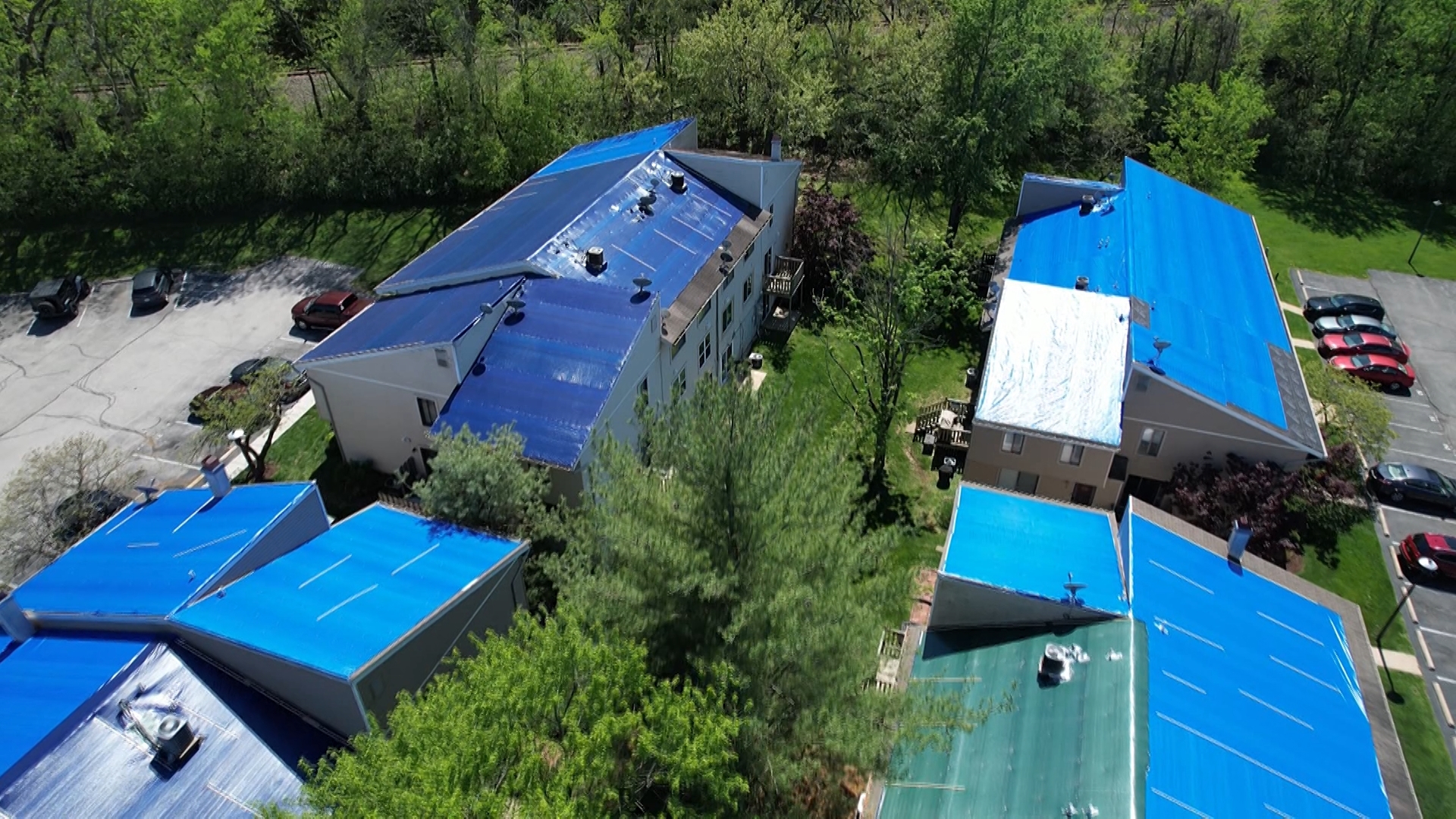Within homeowners and condominium associations, residents often find themselves embroiled in disputes over accountability, transparency, and financial responsibility. The I-Team has uncovered that many of these types of associations are struggling to manage soaring insurance premiums and having trouble meeting their obligations.
The Marie Estates Condominiums in O’Fallon, Missouri, is no exception. It was once a haven for people like Nicolette Flynn. It’s where she started a family.
“It's very quiet and just peaceful," said Flynn, a resident.
But now, discontent brews among residents who feel betrayed by their condominium association, while they pay about $150 every month to keep it running.
“Where's the money going? That's what I want to know. I mean, they send us the yearly budget, but they don't tell us then at the end of the year what they spent it on," said Flynn.
Many residents often pay monthly into condominium and homeowners associations. Money goes toward shared resources like building maintenance and utilities like trash removal. About one in six people in Missouri are part of one, according to Todd Billy, a St. Louis-based attorney who specializes in HOA law throughout our viewing area and is a Fellow of the College of Community Association Lawyers. There are around 5,400 homeowners and condominium associations statewide.
But Flynn points to a litany of grievances, from neglected building and lawn care to unsalted icy pathways.
“I slipped and fell in the parking lot because they didn't properly salt," said Flynn.
The latest headache: roofs that need repair after severe storm damage, with hail the size of golf balls. Flynn thought it was the association’s responsibility to make the fixes. Later, she learned she’d have to work with her insurance, paying around $4,000 out of pocket. Flynn said residents are being told they need to work with their own insurance company to cover the roof replacement, which would be done through a “special loss assessment.” She said she has a loss assessment of $1,000 for the roof, which means she would have to cover the rest out of pocket.
“It just upsets me knowing that I thought I was covered," Flynn said.
So we went straight to the condominium association's president Scott Kortum.
“Where's the money going?” Senior Investigative Reporter Paula Vasan asked.
“Well, most of it goes to insurance premiums," Kortum said.
Insurance experts tell the I-Team premiums have doubled and even quadruped in our area over the last year. It’s left many struggling to keep up with maintenance and repairs.
“So in order to get an insurance policy we can afford without jacking everybody's monthly dues up… we had to get a large deductible," Kortum said.
Complaints also focus on a lack of transparency and oversight. Kortum argues he’s been trying to keep people informed.
“Most of the time, if people ask a question, we'll answer it," Kortum said. “With nobody asking questions until now, I don't see any reason to bend over backwards.”
We obtained the association’s financial records. It shows a condominium association operating on what industry experts call “a shoestring budget” to keep costs low for residents. The downside: Financial surprises down the road.
“Are these issues aggravating enough to make you want to leave?” Vasan said.
“I’ve thought about it, but you have so much invested. Like you can't just get up and just leave," Flynn said.
It all comes as community associations deal with higher costs like spiking insurance premiums, while residents demand — at the very least — transparency.
Billy said this scenario appears to arise from the recent hail storm which is an insurable event. Because of the condominium association’s insurance policy and deductibles, the association needs to fund the difference between the amounts provided by insurance and the actual cost to replace the roofs.
"It appears that this association adopted an assessment for that. An owner can manage the risk of such an assessment via loss assessment coverage under the owner’s individual insurance policy and those decisions are made between the owner and their individual insurance agent or broker," he said.
We asked a spokesperson with the Insurance Information Institute, an industry association, what people should know about condominium and homeowners associations. The company's Scott Holeman told us in an email:
"While most standard condo insurance policies and agreements cover roof damage, it's important for all condo owners to review and understand their specific HOA agreements-both when purchasing a home and when associations make changes to policies. Additionally, condo owners should discuss their specific personal property coverage needs with an insurance professional. While a master association policy should cover roof replacement costs, we are unfortunately seeing more and more scenarios where HOAs have inadequate coverage-and are initiating assessments to condo owners to cover their losses."
For more information about condominium associations from the Insurance Information Institute, click here.
If you’ve got a tip for Paula, leave a voice message on 314-444-5231 or email pvasan@ksdk.com.

